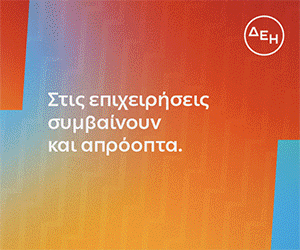
ΒΟΥΛΙΑΖΕΙ Η ΔΗΜΟΤΙΚΟΤΗΤΑ ΤΟΥ
- 27 Apr 2023
- international
New polls show Turkish opposition presidential candidate Kemal Kilicdaroglu leading President Tayyip Erdogan by more than 10 percentage points in the May 14 presidential election.
Polls show the opposition bloc, the National Alliance, leading the parliamentary election by more than 6 percentage points over the ruling Justice and Development Party (AKP) and its allies. The pro-Kurdish Peoples' Democratic Party (HDP) secures a comfortable 10%.
Erdogan faces the most serious challenge yet to his 20-year rule. His popularity is declining due to the long cost of living crisis, while the loyalty of victims of the February 6 earthquake to him is wavering in AKP strongholds.
The election will decide not only who will lead Turkey, but also how the country will be governed, what direction its economy will take and what role it will play both in the war in Ukraine and in the Middle East.
Wolfango Piccoli, political risk analyst at Teneo, says the National Alliance needs to present a united front and offer voters a plan to maintain momentum leading into the election.
"Simply blaming all of Turkey's wrongdoings on Erdogan will not solve the problems. Previous election contests have shown that Erdogan is keen on the campaign trail, but the latest figures show that he has lost his popular appeal and ability to reach voters," he told Reuters.
A poll published by Aksoy Research on Saturday and conducted on March 8 showed Kilicdaroglu, who was named the common candidate of the Turkish opposition on March 6, securing 55.6% of the vote to Erdogan's 44.4%.
It also shows the opposition bloc securing 44.1% of the vote and the HDP 10.3%. The AKP together with the MHP secured 38.2% of the vote.
A poll conducted on March 6 and 7 by Alf Research showed Kilicdaroglu with 55.1% and Erdogan with 44.9%. Kilicdaroglu's People's Democratic Party (CHP) is the most popular with 31.8% of the vote, while the AKP is limited to 31%.
According to the same poll, the National Alliance secured 43.5% of the vote, while the HDP secured 11.3% and the AKP together with the MHP secured 37.5% of the vote.
A Piar Research poll showed Kilicdaroglu as the winner with 57.1%, with Erdogan limited to 42.9%. The CHP secured 32.3%, the AKP 30.8% and the HDP 11.6%. The National Alliance secures 46.4%, while AKP and MHP 37.8%, according to the poll published on March 10.
An ORC Research poll shows Kilicdaroglu at 56.8% and Erdogan at 43.2%. The poll was held March 4-6, before the CHP leader was named the opposition bloc's joint presidential candidate.
The earthquakes do not appear to have had a major impact on the ruling AKP's popularity. In a Metropoll poll, 34.4% of citizens blame the disasters on the government and 26.9% on contractors. Municipal authorities come third with 15.4%, while 12.9% answer "all".
Merve Tahiroglu, director of the Turkey program at the Project on Middle East Democracy in Washington, says the diversity of the opposition alliance means that each leading figure in the bloc can appeal to and appeal to a different part of Turkey.
"At this particular moment we have more reason to be optimistic about a Turkish election outcome in favor of the opposition than we have been in the last 20 years," he said, speaking at a panel at the Foundation for Defense of Democracies.





